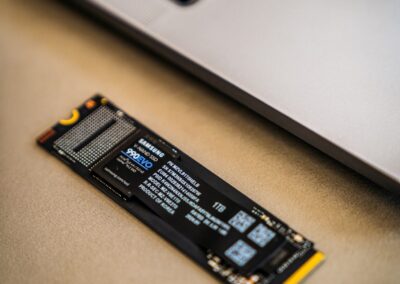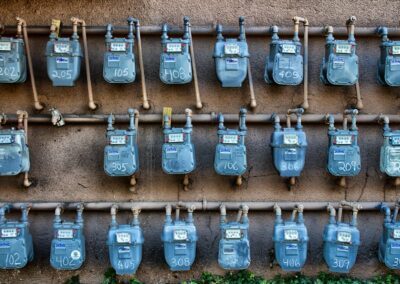Harnessing Digital Twins for Enhanced Efficiency and Performance in Energy Systems
The Role of Digital Twins in Energy Management
Digital twins in energy management are at the forefront of transforming how energy systems are monitored, optimized, and managed. This advanced technology creates a digital replica of physical energy systems, enabling real-time data integration, predictive analytics, and strategic decision-making. By utilizing digital twins, energy companies can significantly enhance the efficiency, reliability, and performance of their infrastructure.
Digital twins integrate data from various sources, including IoT sensors, historical maintenance records, and operational data, to provide a comprehensive and dynamic view of the energy system. This real-time monitoring allows for immediate identification of inefficiencies, potential failures, and maintenance needs. Consequently, digital twins enable proactive management of energy systems, reducing downtime, lowering maintenance costs, and extending the lifespan of critical assets.
In regions like Saudi Arabia and the UAE, where energy infrastructure is vital for economic growth and sustainability, the adoption of digital twins can play a pivotal role. Cities such as Riyadh and Dubai are investing heavily in smart infrastructure and modern technology, making them ideal for implementing digital twins. By integrating digital twins into their energy management practices, these regions can lead the way in creating more efficient and sustainable energy systems.
Improving Efficiency with Real-Time Insights and Predictive Analytics
The application of digital twins in energy management offers substantial benefits through real-time insights and predictive analytics. Real-time data monitoring allows energy managers to have an instant overview of the entire energy system, from generation to distribution. This capability is essential for identifying and addressing inefficiencies as they arise, ensuring optimal energy usage.
For example, digital twins can monitor the performance of power plants, transmission lines, and substations, detecting anomalies such as temperature fluctuations, vibration patterns, and electrical imbalances. By providing immediate alerts and actionable insights, digital twins enable prompt maintenance and adjustments, maximizing the efficiency and reliability of these energy systems. Additionally, predictive analytics can forecast equipment failures based on historical data and current operational conditions, allowing for proactive maintenance planning.
In Saudi Arabia and the UAE, where extreme weather conditions and high energy demands can stress energy infrastructure, digital twins can enhance system reliability and efficiency. By incorporating this technology into their practices, these regions can improve their ability to respond to fluctuations in energy production and consumption, ultimately leading to more stable and sustainable energy systems.
Enhancing Energy Management with Case Studies
The use of digital twins in energy management has been demonstrated through various case studies, highlighting their potential to optimize energy systems significantly. For instance, a case study involving a European utility company revealed that implementing digital twins led to a 20% reduction in operational costs and a 15% improvement in energy efficiency. By leveraging digital twins, the company could monitor its entire grid in real-time, predict maintenance needs, and optimize energy distribution.
Similarly, in the UAE, a pilot project utilizing digital twins in a large solar power plant demonstrated a significant increase in energy output. By monitoring the performance of solar panels in real-time and predicting maintenance needs, the plant achieved a 10% increase in energy production and a 25% reduction in maintenance costs. This project highlights the potential of digital twins to enhance the performance of renewable energy systems, contributing to the region’s sustainability goals.
In Saudi Arabia, digital twins are being integrated into the national grid to improve energy management and reduce outages. By simulating different scenarios and analyzing real-time data, energy managers can optimize grid operations, balance loads more effectively, and enhance grid stability. These case studies demonstrate that digital twins are not only a theoretical concept but a practical solution with tangible benefits for energy management.
Strategic Implementation for Energy Management Success
Successfully implementing digital twins in energy management requires a strategic approach that combines technological innovation with expertise in energy management. This involves selecting appropriate digital twin platforms, ensuring interoperability with existing energy management systems, and training energy managers and engineers to utilize the technology effectively.
Executive coaching and leadership development are essential components of this process. Business leaders must champion the adoption of digital twins, drive innovation, and foster a culture of continuous improvement within their organizations. By investing in leadership development, energy companies can ensure their teams are well-equipped to leverage digital twins for maximum impact.
In regions like Riyadh and Dubai, where modernization and technological advancement are priorities, the strategic implementation of digital twins can significantly contribute to energy management success. By aligning technological innovations with leadership and strategic vision, these cities can set new standards for energy efficiency and sustainability, enhancing their reputation as global leaders in smart energy solutions.
Conclusion
In conclusion, digital twins in energy management offer transformative benefits for optimizing energy systems and enhancing their efficiency and performance. By providing real-time monitoring, predictive analytics, and advanced simulations, digital twins enable better decision-making, increased efficiency, and greater sustainability. As regions like Saudi Arabia and the UAE continue to embrace modern technology, the integration of digital twins will play a pivotal role in advancing energy management practices. Through strategic implementation and strong leadership, businesses can harness the full potential of digital twins to achieve greater efficiency, precision, and success in managing energy systems.
—
#DigitalTwins #EnergyManagement #EnergySystemsOptimization #AIinEnergy #SmartGrids #SaudiArabia #UAE #Leadership #BusinessSuccess #ProjectManagement























